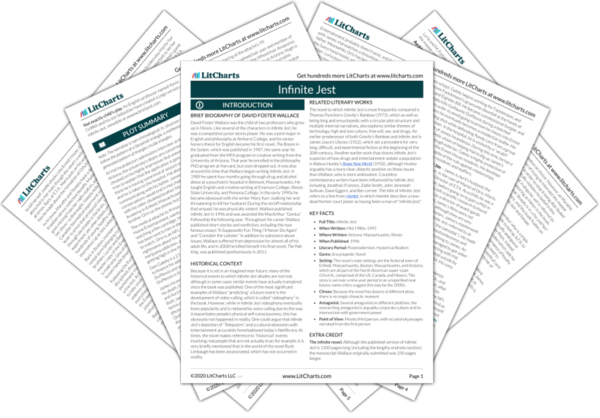LitCharts assigns a color and icon to each theme in Infinite Jest, which you can use to track the themes throughout the work.
Talent, Precociousness, and Fame
Addiction, Mental Illness, and Suicide
Reality as Corporate Dystopia
Institutional Control vs. Rebellion
